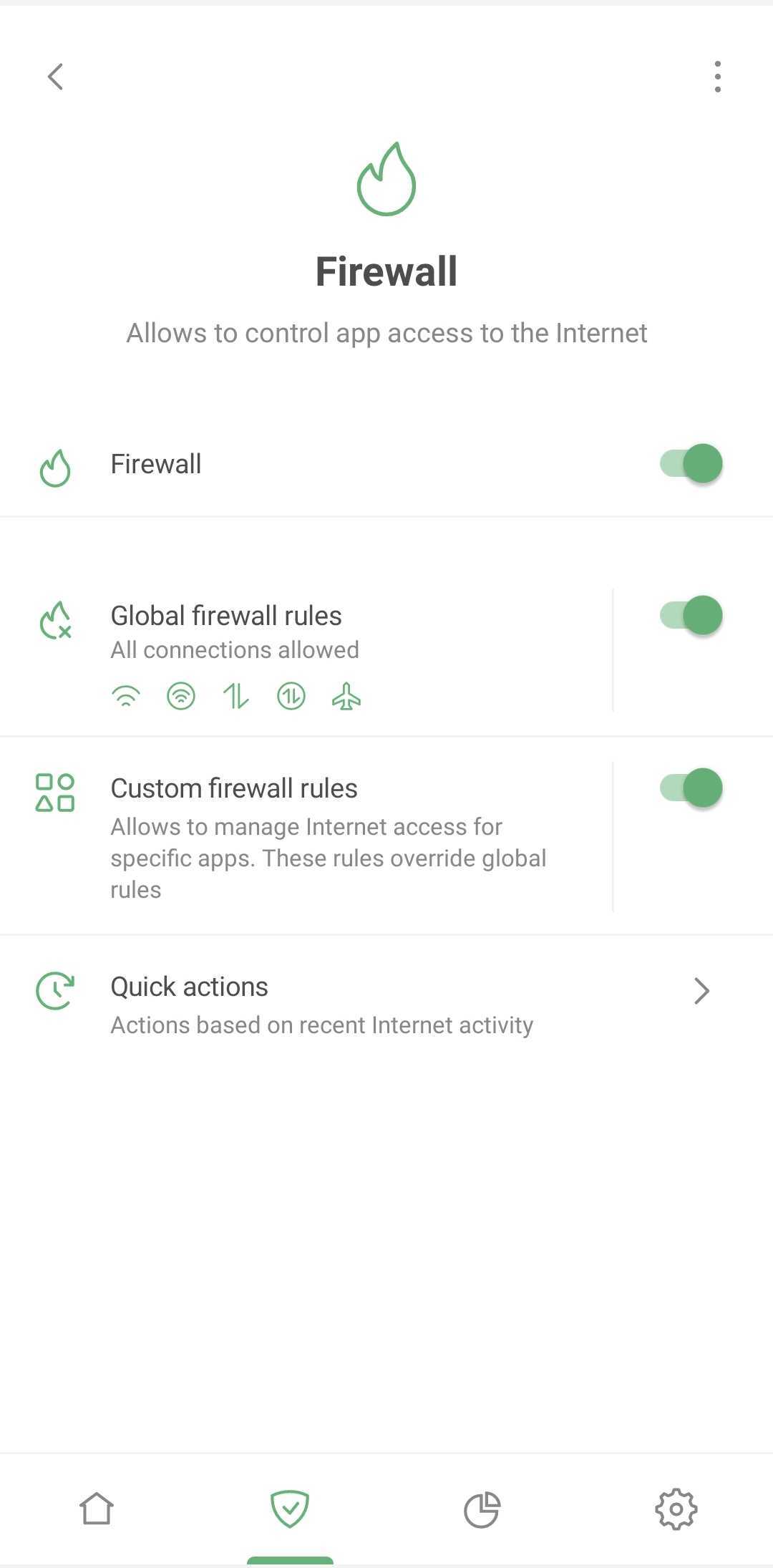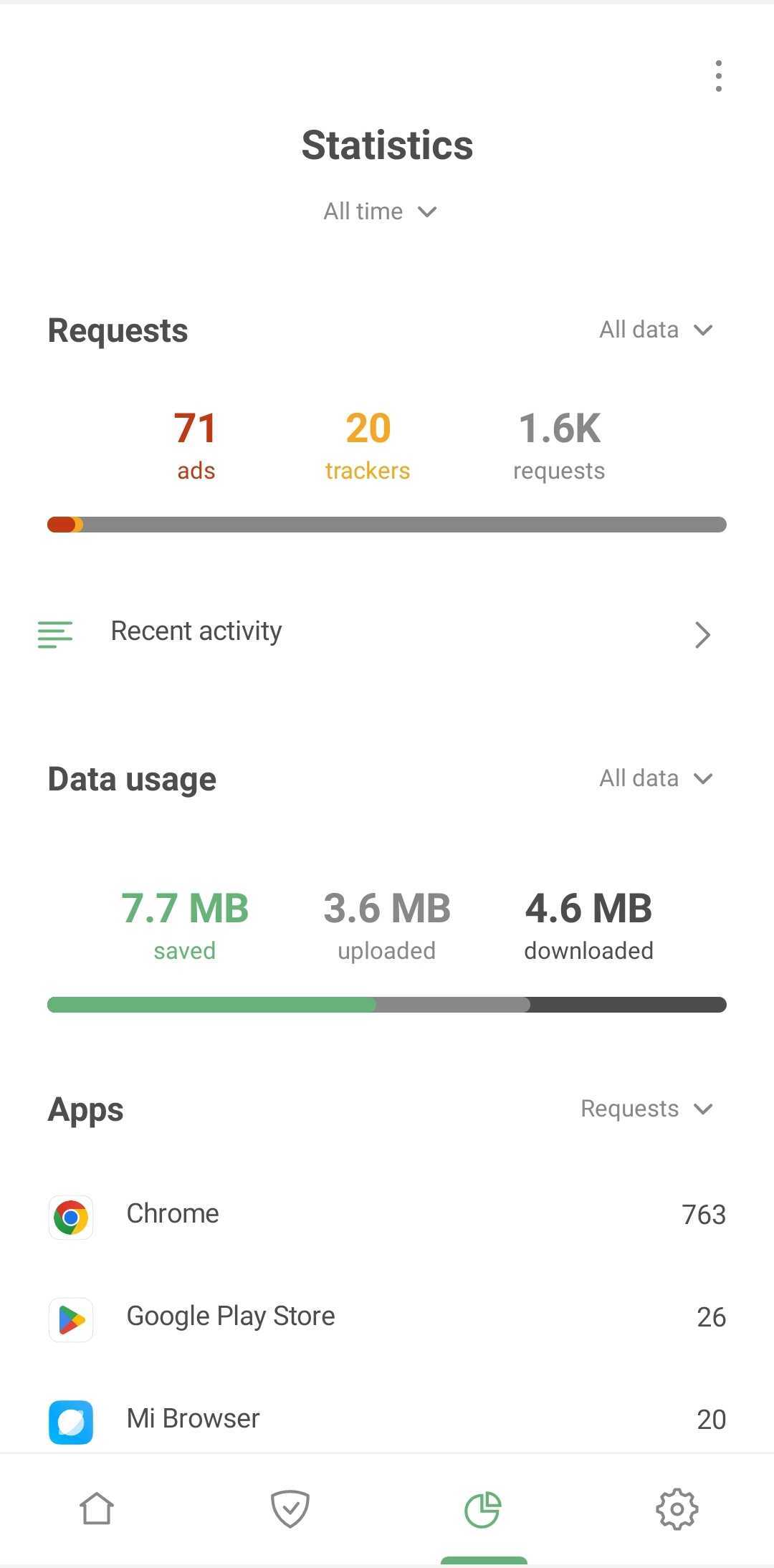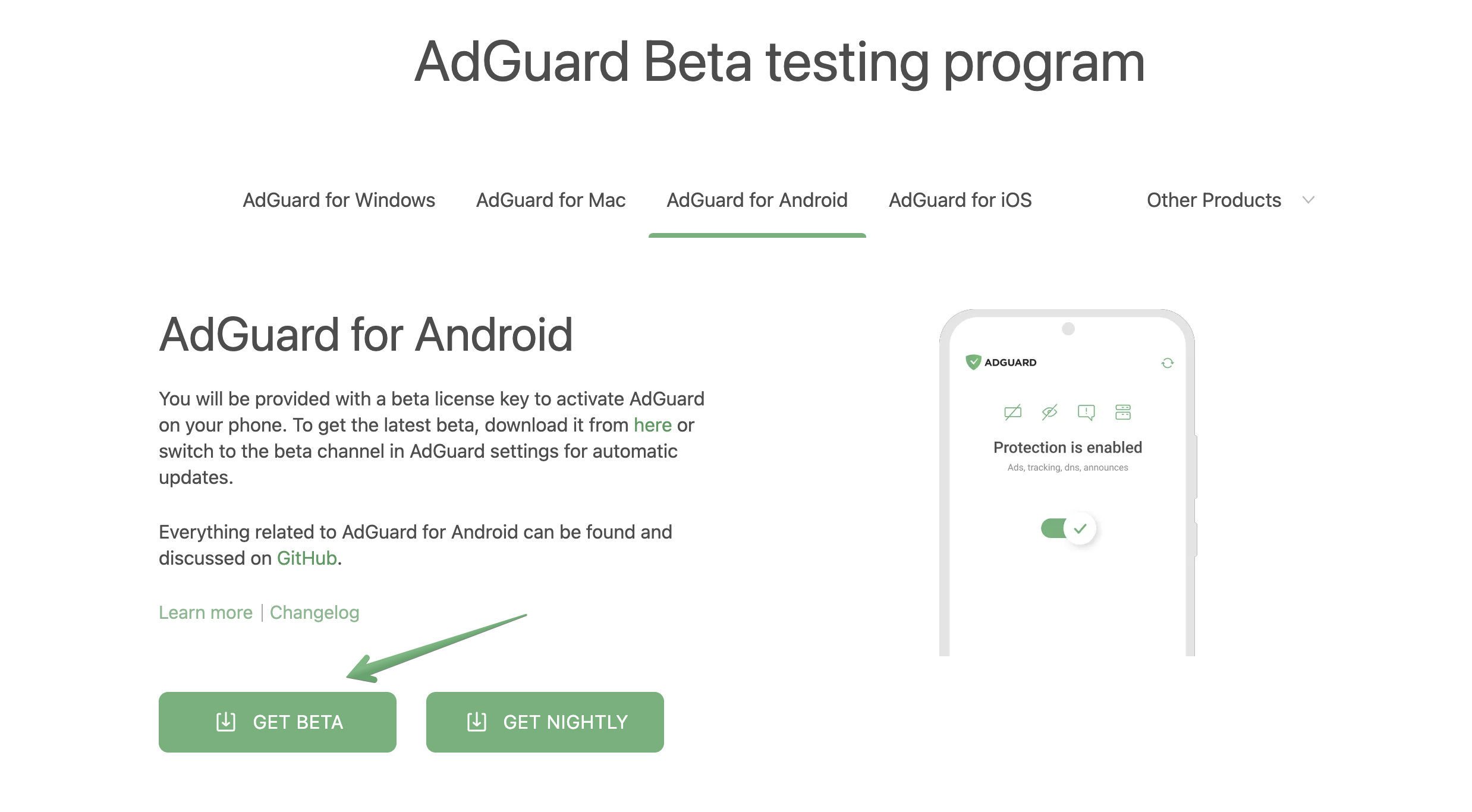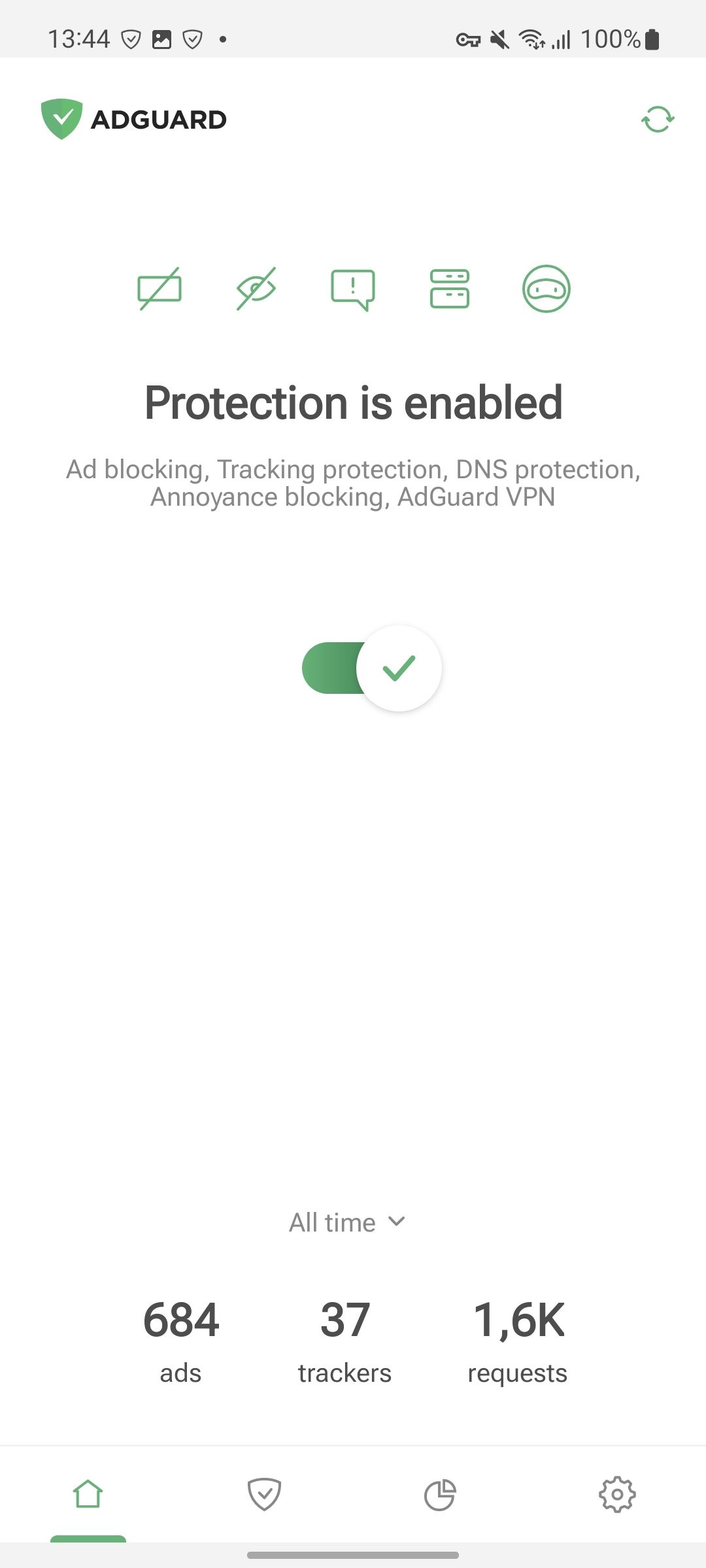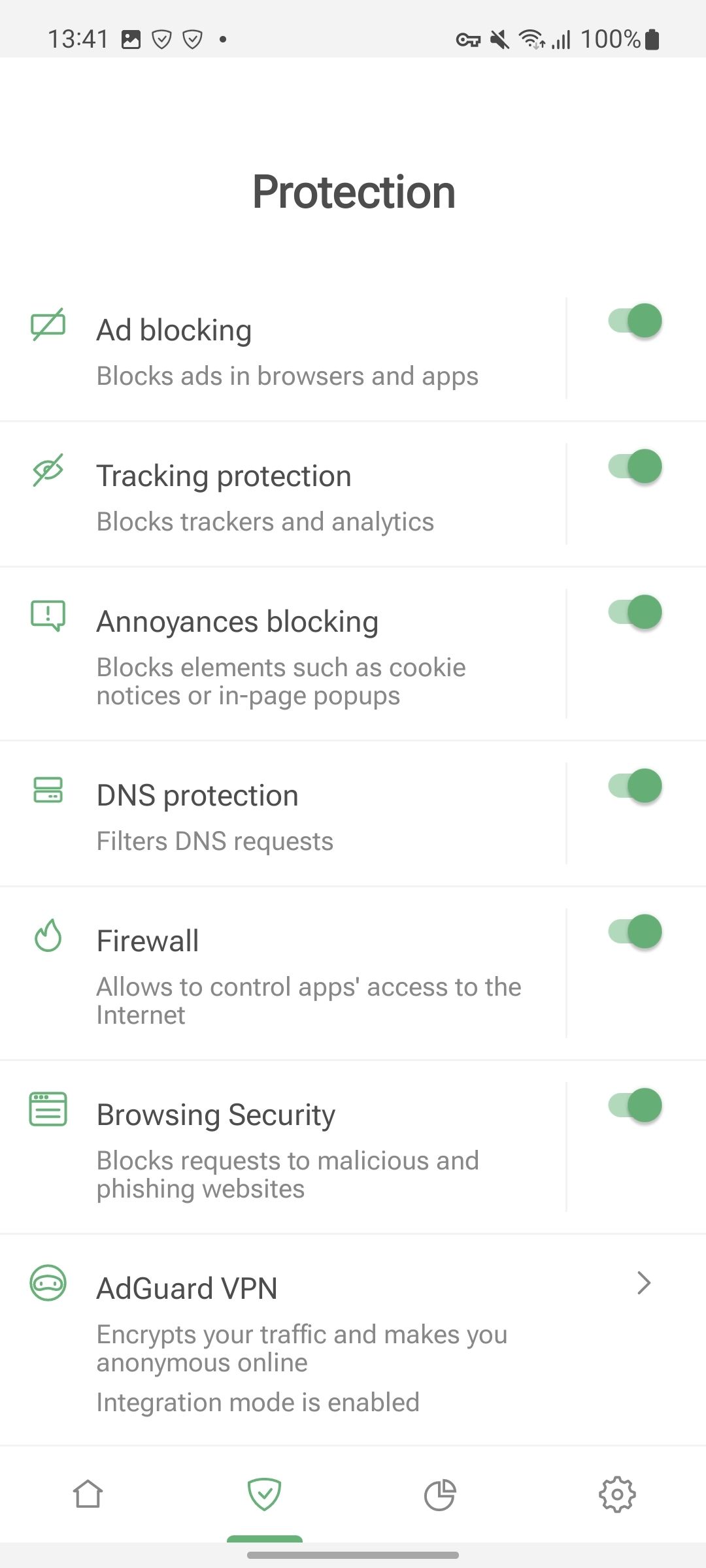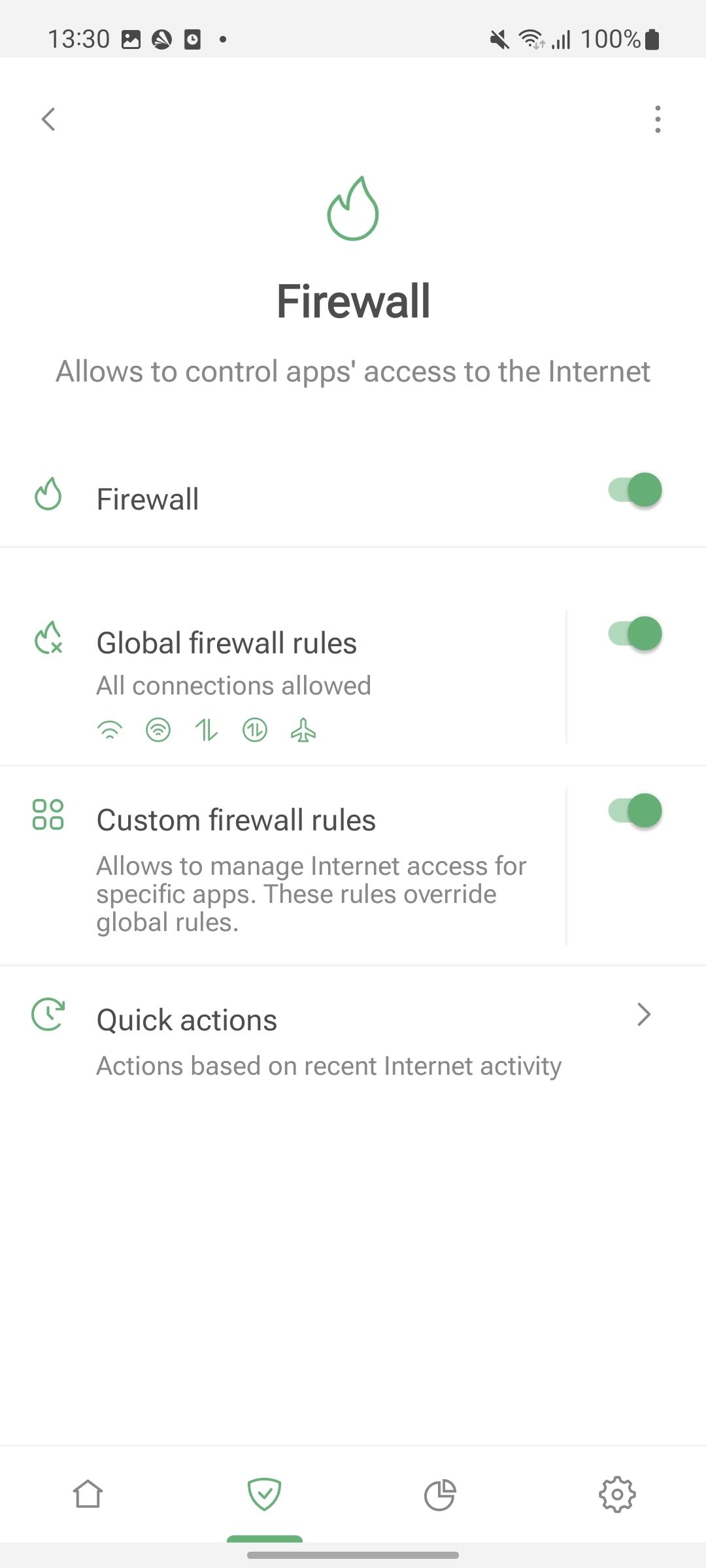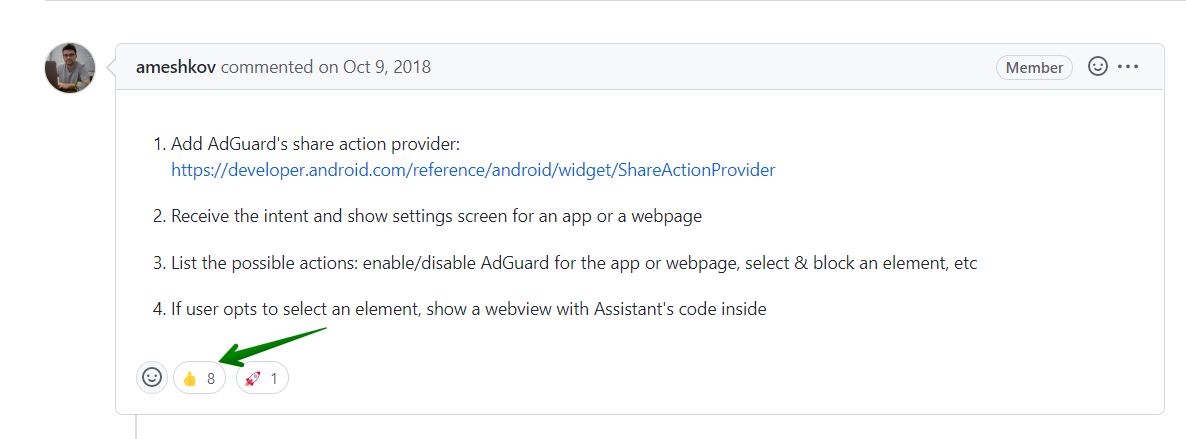Releases: AdguardTeam/AdguardForAndroid
4.0 beta 1
Remember when we talked about the first Nightly of AdGuard v4.0 for Android? It was the first version after a long break — with reworked design and texts, rewritten code, and new features.
Thanks to our development, QA, design, and content teams, we’re releasing the first beta version: refreshed, significantly more stable, and available in multiple languages.
Since the release of the first Nightly version, we’ve fixed more than 100 bugs! Though, it doesn't mean there are no more left (known issues are gathered on GitHub). If you encounter any, please let us know. Instructions on how to report bugs are below.
First Nightly updates
If you haven't read the post about Nightly, take a look. We wrote a lot about the changes compared to v3.6, the last AdGuard version before v4.0. There’s something useful for those who are not very tech-savvy, as well as for those who understand the details and are willing to dig even into low-level settings.
Here’s a brief overview of the improvements:
- Complete redesign. We made the design lighter, more minimalist, and easier to understand, and put the most important features on a separate screen — now it will be much easier to access them.
- Firewall. Now you can control the access to the Internet for all your apps — if you wish, prevent them from using the Internet without your knowledge.
- Statistics. Now you can view detailed stats for apps, companies, and domains. Complete transparency!
- Integration with AdGuard VPN. We’ve greatly enhanced the stability of the Integrated mode.
- Selective app proxying. Now you can exclude apps from your proxy — even from AdGuard VPN!
- Root access perks. On rooted devices, among other things, you can now apply DNS filtering to IPv6 requests — thanks to the Automatic proxy mode.
- Easier-to-understand low-level settings. We’ve updated the design and added clear descriptions as well as input validation so you can be sure that everything is working as it should.
What’s changed since the first Nightly
Support for multiple languages
Now the app supports more than 15 languages. But we know there’s much to be improved. If you notice that some translations are missing or if the app is not translated into your language, we’ll be thankful for your contributions on Crowdin. Read more about how to translate AdGuard products in our Knowledge base.
Firewall roaming support
Although this feature was already in the first Nightly version, it didn’t actually work — a truly nightly experience. But now you can block access to the Internet for specific apps when roaming. Megabytes, especially valuable when you're traveling abroad, won't be wasted.
Import and export of user rules, blocklists, and allowlists
In the first Nightly, you could only import settings as a whole. Now you can import user rules separately. It’s useful if you want to share your rules with someone or transfer them to your other AdGuard apps.
How to download beta
Visit the beta page, download the APK file of the beta version, and install it. Done! You’re ready to start exploring.
Alternatively, you can choose the beta channel right in the app. If you’ve used the Nightly channel, go to Settings → General → App and filer updates and switch to Beta.
If you’re using the Release channel, open Settings* → General → Updates → Update channel and select Beta.
To switch back to the Release channel, you’ll need to reinstall the app.
Report bugs and vote for feature requests
We’ve already talked about that earlier, so here’s a quick reminder:
- Check out the Android repo to make sure the issue hasn’t been reported yet.
- If the issue is new, open the page for creating new issues and select Bug report.
- Describe the problem. If possible, attach screenshots or a screen recording.
If you want to support the implementation of a new feature or bugfix, you can vote for it on GitHub. To vote, just react with some emoji.
If you use AdGuard VPN and Ad Blocker in the Integrated mode, download the beta version of AdGuard VPN.
In conclusion
We're one step closer to the release we hope you'll enjoy. We would like to thank all the beta testers and translators for their dedication — with your help, bugs get fixed and the app gets better.
AdGuard for Android direct download links:
4.0 Nightly 39
We haven't talked about AdGuard's mobile apps for a long time, but now we're ready to let you in on what we've been up to.
The Android app has been improved so that everyone can enjoy its perks. It is now much simpler to use for people without any technical background and more packed with features for those who want complete control over their data.
Moreover, we've completely rewritten the app so that it runs way faster and smoother.
Disclaimer: this is a Nightly version — so the app contains more bugs than usual (here's the list of known issues). If you're not ready to report bugs, better not take the risk and wait for the release — we're actively working on making the app more stable.
Updates useful for everyone
Full redesign
Originally, AdGuard for Android has a plethora of features — it serves as an all-purpose tool for blocking ads, trackers, and other threats. While redesigning it, we tried to simplify access to the "core" features, so that all of them are available with a single tap. Now, to turn on Ad blocking, Tracking protection, Annoyance blocking, or DNS protection along with their filters, you can just tap the corresponding icon above the main switch.
We've also added the Protection section. You can find it by tapping the shield icon at the bottom of the screen. Apart from the above-mentioned "core" features, this section allows you to manage Firewall, Browsing security, and even AdGuard VPN. On the Protection screen, you may turn these modules on or off as well as easily access their settings.
Detailed statistics
This is not news that apps nowadays do whatever they want with your data and leak it all over the place. And it's quite logical that the user wants complete control over their data. With AdGuard, it's already possible — and now we're introducing a feature that would provide even more transparency! Which apps and companies would potentially leak your data?
With Statistics, you'll now be able to track which apps send your data to global corporations — and block or allow some requests on the fly.
Firewall
The Android app used to have a functionality similar to Firewall earlier, but it was hidden deep inside the app — in the App management section. Now it's become a completely standalone feature with well-defined scope of actions.
Firewall allows you to control the apps' access to the Internet: decide which apps can use mobile data or Wi-Fi with screen off, get real-time notifications on app activity, and update firewall rules in the Quick actions section.
The Nightly version is filled to the brim with new features, and this is just the beginning. If you are curious to learn more, read the blog post — there we cover the advanced features in detail and share our plans for the future.
Test it yourself
We need your feedback! Download the Nightly version of AdGuard v4.0 for Android and (if you're using AdGuard VPN) the Nightly version of AdGuard VPN, report issues, and send feature requests. Here's the info you might need.
How to report an issue
If you've noticed a bug, please tell us about it by creating a GitHub issue. Describe what you've found and share your logs with [email protected] — this'll make it easier for us to address the problem.
To collect logs, tap Settings → General → Advanced and select Export logs and system info.
There are things we're already working on — they don't need to be reported. Please consult the list of known issues if you're about to send us a bug report.
Vote for feature requests
On GitHub, you can leave your reactions on feature requests. That'll help us find out what most people are interested in. To leave your reaction, select the feature request you like and use an emoji to support its implementation.
In conclusion
We've never devoted this much attention to a single nightly version — and for a reason. They are usually of interest only to a small number of die-hard enthusiasts. But this time is different. This version heralds huge changes that will soon come to AdGuard Ad Blocker for Android for a lot of people, and we want to do it right.
With your help, the help of the community, we will be able to track down every single bug and tweak all the knobs just right, so that once the update ships to release, millions of AdGuard users will find it perfect.
3.6.11
Disclaimer AdGuard for Android is not an open-source project. We use Github as an open bug tracker for users to see what developers are working on.
You must have been missing AdGuard for Android updates. Well, you won't be bored now, because we're breaking into 2023 with a new release of the product, and we'll only gain traction from there.
The main changes in AdGuard v3.6.11 for Android were made in our core filtering engine – CoreLibs and DNSLibs. As for the rest, we’ve worked to enhance content filtering and made a bunch of minor changes to improve the application performance.
Updated DnsLibs to v2.0.75 #4324
A significantly updated version of the DNS filtering library consumes less resources and runs faster. The DNS-over-QUIC protocol implementation now supports the RFC 9250 standard, and the experimental status was removed from the DoQ support.
First step to Encrypted ClientHello support DL#161
First of all, what is Encrypted ClientHello? Nowadays, almost every internet connection is encrypted and no one can see what's inside this encrypted connection. However, there is still one little issue with it: the very first packet of the connection indicates the name of the server you are connecting to. Say you want to open www.google.com, your ISP cannot see what exactly you send and receive from it, but they know what website you are communicating with. ECH (Encrypted ClientHello) is a new technology that is supposed to solve this issue and encrypt that last bit of unencrypted information.
So what would be the first step to supporting it from AdGuard? Surprisingly, it is to suppress ECH! This can be done by switching on both pref.dns.block.ech and pref.https.redirect.doh flags in the Low-level settings.
But fret not: what we want to achieve is to provide you with ECH support globally so that all your apps could benefit from ECH, not just your browser. To accomplish this, AdGuard makes your apps establish regular HTTPS connections with it, and then it will establish a ECH-enabled connection on their behalf. This experimental feature is planned for the next update so stay tuned.
Updated CoreLibs to v1.10.186
DNS-over-HTTPS filtering
Added an option to redirect secure DNS requests to the local DNS proxy #1563
Chrome and Firefox DNS queries sometimes could circumvent DNS filtering by using a DNS-over-HTTPS server. Now AdGuard can automatically filter DNS-over-HTTPS as well.
This feature is experimental and can be enabled in Low-level settings, its name is pref.https.redirect.doh. In the future versions we're planning to enable it by default.
Improved content filtering
The following new features are important to filter maintainers and provide advanced capabilities for content filtering.
Enhancement
- Added a new
$jsonprunebasic rule modifier. This modifier allows advanced filtering for JSON responses #1447 - Added a new
$hlsbasic rule modifier. This modifier provides advanced filtering capabilities for modifying HTTP live streaming files which will help with preventing video ads. #1434 - Expanded capabilities of the
$stealthmodifier. Filters maintainers can now specify which Stealth Mode features should be disabled for a given URL. Before that change the only option was to completely disable Stealth Mode. #1224 - Added support for empty
$pathmodifier for non-basic rules. #1591 $removeparamcan now be applied to POST requests. #1573
Fixed
- Hide your Referrer from third-parties Stealth mode option interferes with the
$third-partymodifier #1640 - Cosmetic rules with
:where()pseudo-class are rejected #1609 - Rules with
$third-partymodifier block resources from the site's own subdomain #1637 - Rules with the
$allmodifier do not block explicitly visited sites #1590
Other improvements
- Enabled HTTPS filtering by default for Soul Browser #4202
Other fixes
- When confirming 2FA the code entry page disappears in some cases
- AdGuard does not create a local VPN and protection does not start #4269
- Internet fails to work when a network is changing from Wi-Fi to mobile data #4265
- Compatibility issue with iRobot Home app #4273
AdGuard for Android direct download links:
3.6.11 beta 2
Disclaimer AdGuard for Android is not an open-source project. We use Github as an open bug tracker for users to see what developers are working on.
They say that two betas before a release is a good sign. Today we are releasing the second beta of AdGuard v3.6.11 for Android with only one change: updated DnsLibs.
Changelog
Enhancement
- Updated DnsLibs to v2.0.75 #4324
AdGuard for Android direct download links:
3.6.11 beta 1
Disclaimer AdGuard for Android is not an open-source project. We use Github as an open bug tracker for users to see what developers are working on.
You must have been missing AdGuard for Android updates. Well, you won't be bored now, because we're breaking into 2023 with a new beta version of the product, and we'll only gain traction from there.
The main changes in AdGuard v3.6.11 for Android beta were made in our core filtering engine – CoreLibs and DNSLibs. As for the rest, we’ve worked to enhance content filtering and made a bunch of minor changes to improve the application performance.
Updated DnsLibs to v2.0.66
A significantly updated version of the DNS filtering library consumes less resources and runs faster. The DNS-over-QUIC protocol implementation now supports the RFC 9250 standard, and the experimental status was removed from the DoQ support.
First step to Encrypted ClientHello support DL#161
First of all, what is Encrypted ClientHello? Nowadays, almost every internet connection is encrypted and no one can see what's inside this encrypted connection. However, there is still one little issue with it: the very first packet of the connection indicates the name of the server you are connecting to. Say you want to open www.google.com, your ISP cannot see what exactly you send and receive from it, but they know what website you are communicating with. ECH (Encrypted ClientHello) is a new technology that is supposed to solve this issue and encrypt only the last bit of unencrypted information.
So what would be the first step to supporting it from AdGuard? Surprisingly, it is to suppress it! This can be done by switching both pref.dns.block.ech and pref.https.redirect.doh flags in the Low Level Settings.
But fret not: what we want to achieve is to provide you with ECH support globally so that all your apps could benefit from ECH, not just your browser. To accomplish this, AdGuard makes your apps establish regular HTTPS connections with it, and then it will establish a ECH-enabled connection on their behalf. This experimental feature is planned for the next update so stay tuned.
Updated CoreLibs to v1.10.186
DNS-over-HTTPS filtering
Added an option to redirect secure DNS requests to the local DNS proxy #1563
Chrome and Firefox DNS queries sometimes could circumvent DNS filtering by using a DNS-over-HTTPS server. Now AdGuard can automatically filter DNS-over-HTTPS as well.
This feature is experimental and can be enabled in Low Level Settings, its name is pref.https.redirect.doh. In the future versions we're planning to enable it by default.
Improved content filtering
The following new features are important to filter maintainers and provide advanced capabilities for content filtering.
Enhancement
- Added a new
$jsonprunebasic rule modifier. This modifier allows advanced filtering for JSON responses #1447 - Added a new
$hlsbasic rule modifier. This modifier provides advanced filtering capabilities for modifying HTTP live streaming files which will help with preventing video ads. #1434 - Expanded capabilities of the
$stealthmodifier. Filters maintainers can now specify which Stealth Mode features should be disabled for a given URL. Before that change the only option was to completely disable Stealth Mode. #1224 - Added support for empty
$pathmodifier for non-basic rules. #1591 $removeparamcan now be applied to POST requests. #1573
Fixed
- Hide your Referrer from third-parties Stealth mode option interferes with the
$third-partymodifier #1640 - Cosmetic rules with
:where()pseudo-class are rejected #1609 - Rules with
$third-partymodifier block resources from the site's own subdomain #1637 - Rules with the
$allmodifier do not block explicitly visited sites #1590
Other improvements
- Enabled HTTPS filtering by default for Soul Browser #4202
Other fixes
- When confirming 2FA the code entry page disappears in some cases
- AdGuard does not create a local VPN and protection does not start #4269
- Internet fails to work when a network is changing from Wi-Fi to mobile data #4265
- Compatibility issue with iRobot Home app #4273
AdGuard for Android direct download links:
3.6.10
Disclaimer AdGuard for Android is not an open-source project. We use Github as an open bug tracker for users to see what developers are working on.
In this version we’ve improved connectivity check — now the app determines better whether there is internet connection.
AdGuard for Android direct download links:
3.6.10 Beta 2
Disclaimer AdGuard for Android is not an open-source project. We use Github as an open bug tracker for users to see what developers are working on.
This is a technical beta update aimed to fix minor bugs.
AdGuard for Android direct download links:
3.6.10 Beta 1
Disclaimer AdGuard for Android is not an open-source project. We use Github as an open bug tracker for users to see what developers are working on.
In AdGuard v3.6.10 for Android we’ve improved connectivity check — now the app determines better whether there is internet connection.
AdGuard for Android direct download links:
3.6.9
Disclaimer AdGuard for Android is not an open-source project. We use Github as an open bug tracker for users to see what developers are working on.
This is a technical update aimed to increase the app stability and fix minor bugs.
AdGuard for Android direct download links:
3.6.9 Beta 1
Disclaimer AdGuard for Android is not an open-source project. We use Github as an open bug tracker for users to see what developers are working on.
This is a technical update aimed to increase the app stability and fix minor bugs.

